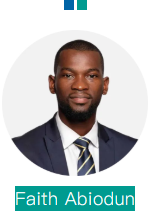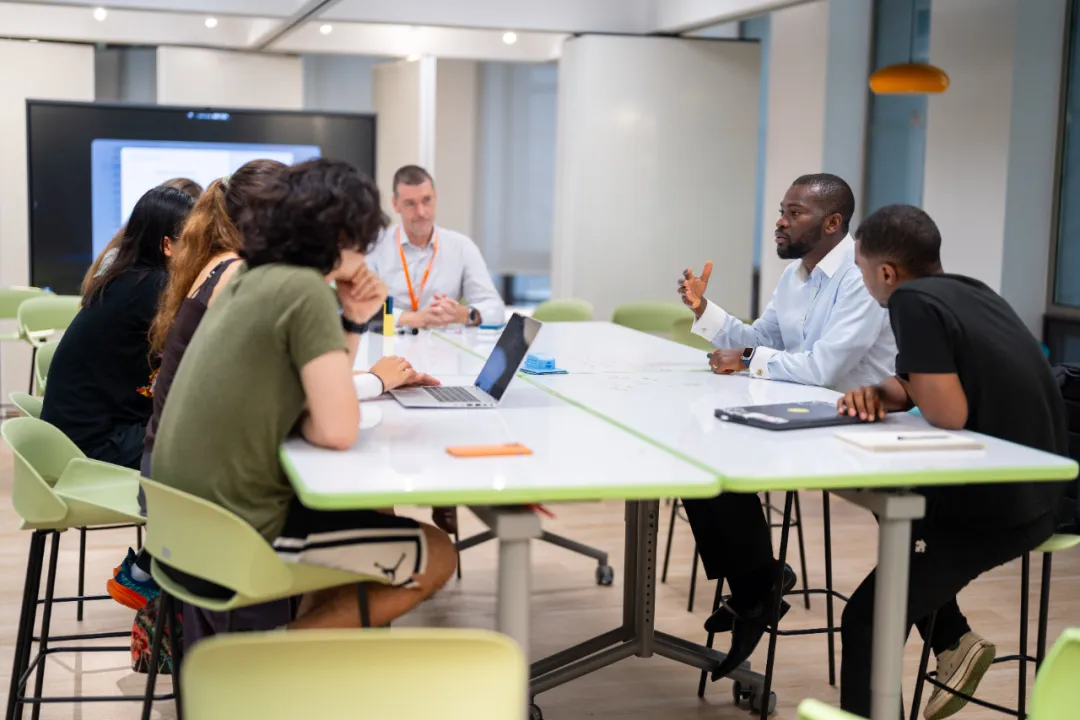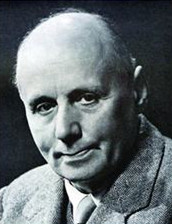Why We Need UWC Today: Insights from the Executive Director
Issue date:2024-11-22At the beginning of the 2024-2025 academic year, we had the honor of welcoming Mr. Faith Abiodun, the Executive Director of the UWC International Office, to UWC Changshu. During his visit, he shared his vision for UWC’s future as well as encouraged us to explore the essence of UWC as an organization, its significance in the present day, and how UWC empowers students to face the various challenges of the future.

Executive Director of UWC International
Faith Abiodun became Executive Director of UWC International in 2021, bringing extensive experience in education and social enterprise. Previously, he spent nearly a decade at the African Leadership Academy (ALA) in Johannesburg, and founding the ALA Model African Union.
Earlier, Faith was a journalist with The Guardian in Nigeria and founded The Speech Academy and Future Africa. He also worked in Corporate Communications at the Bi-Courtney Group and with Catalyst 2030. He serves on the Board of Trustees for News Decoder and holds degrees from the University of Ibadan and Syracuse University. He is an alumnus of the WISE Learners Voice Executive Education program.
1. Can you share some key highlights of your journey that led you to become executive director of UWC International?
My name is Faith Abiodun. I'm from Nigeria. It's been my privilege to serve as executive director at UWC International for the last three years. I began my career in education about 15 years ago, and prior to that, I grew up in Nigeria as a journalist and as a social entrepreneur.
A lot of my experiences have led me to see many things that are challenging in society. I’ve experienced social unrest, political instability, and I’ve also experienced the world of education.
I have seen the value that education plays as a vehicle to introducing people to themselves, and to some of the best and worst parts of society. Education is a pathway to helping people build skills that enable them to make a difference in some way.
Of all the education organizations that I have been a part of and learned about, UWC has stood out because of the mission that we aspire to, and the many ways in which our global community comes together to attempt to work towards building peace and shaping a sustainable future through young people.
UWC as a whole reflects a lot of my personal journey and upbringing. I went to school in Nigeria with students from different parts of the world and had early exposure to experiential learning, service, and intercultural understanding through education. Having a chance now to not just practice that for myself as an adult, but help to stimulate such opportunities for young people is a huge privilege.
Young people can have difficulty in understanding parts of the world that they’ve never been due to the trap of media biases. It is immensely valuable to experience upfront what it's like to carefully curate and stimulate intercultural awareness in young people, in a safe environment, like we have in our school community at UWC.
We're also experiencing lots of social unrest and political instability in parts of the world. Our young students are not immune from that. They are coming to our campuses with experiences and national realities that could create an attitude of negativity. We have a unique responsibility, through all of our schools and our short programs, to help people learn the skills of peacemaking, peacebuilding, and holding space for other people to be different and also to be right.
We have the unique responsibility of helping the next generation be much more prepared for all kinds of complex realities. In the social enterprises that I have managed and in the educational spaces where I have worked, I've had the privilege of coaching and training lots of young people with many of the skills to be able to analyze complex situations, and to be able to design unique ways to be different and to make more of a difference in society.
2. In your view, what makes UWC unique and valuable in today's world?
When UWC was founded, it was because there was a desire to help create a new world order, a new way of thinking, a way of engaging that did not position difference as the most important thing in life.
We wanted to bridge gaps between people because we have seen the legacy of distrust. We've seen the legacy of political conflict in the world that always just leads towards war. UWC wanted to create a pathway for peace to be built in the world and to do that through young people and education as the most powerful weapon.
What we are doing here is to stimulate deeper connections between people from various national, ethic, cultural and socioeconomic backgrounds. This intermingling of ideas is very important and critical for shaping the world in which we live today.
The world is more open. The world is more accessible, but is it more connected? Is it more human? What is the impact we have on the natural environment in which we live? Are we more protective of nature? These are questions and values that we must hold on to if we're going to shape a more peaceful and sustainable world. So our vision for UWC, and the influence we have on the world beyond us, is that education continues to be this vehicle through which we shape a better world.
Our invitation is for young people, their families, teachers, and all education practitioners to seek to work together. Not just to deliver education, as we've always done so, but to transform the delivery and practice of education. In a way that prepares young people, no matter where they find themselves that they can change themselves and they could change the interaction with fellow human beings and with the environment. And when they get a chance, they can change societies wherever they go in the world.
3. What skills and competencies do you believe are essential for students to respond to future challenges? How does UWC equip students with those skills?
Across the UWC movement, our students are very privileged to be engaged in activities that stimulate critical thinking, which is one of the most valuable skills we talk about. What critical thinking does is it allows people to slow down to observe a certain phenomenon or topic from multiple angles. Do not be quick to form opinions, learn to engage with other fields of thought and ways of thinking that are different from what they might have built as their own biases.
The second skill is intercultural awareness. We are deliberately diverse in our communities. And that makes a difference because it helps people to not think in homogeneous ways. It enables them to engage with difference.

Perhaps a third skill would be the capacity to think and act entrepreneurially. It's critical for anyone who comes to UWC that they’re not a passive observer in society. But as they engage with people who are different, as they engage with topics that are different, as they engage with inquiry, as a method of learning, we also inspire them to want to take action, because it is acting in practice, doing something that we become better human beings.
So a person who comes to UWC first and foremost, must humble themselves to learn about other people, they must find the capacity to listen and learn, and take the courage to act in some kind of way. You put all of those things together. You can begin to make a difference in society.
4. What is the future of UWC look like?
At the moment, we have just finished the work to approve a new direction for the UWC movement program. In envisioning and shaping the future for UWC movement, we attempted to refine, redefine and then quantify our vision.
What does UWC look like? There are UWC organizations across the world. We asked ourselves, when we bring it all together, what does UWC do as a whole? We have developed what is called the theory of impact, a theoretical framework that defines how we seek to create impact in the world.
Our theory of impact now has three parts.
The first part is one of the things we do best. We are very good at finding and bringing together young people from all kinds of backgrounds across the world who have potential and promise to help shape the future. We claim this as one of our unique strengths and a significant part of our pathway to shaping peace.
The second part is our focus on values-driven experiential education. We believe we go harder the most to embed the values, the sense of mission, the sense of purpose in an experiential way, to help to bring people together and listen to each other and to inspire them to want to go out and make a difference in the world.
The third is the deliberate effort to connect people to each other for a lifetime and, to the mission of UWC. We want to further opportunities and spaces in which they can make a difference. These lifelong connections that people feel in the UWC movement now fit into our strategy.
There is also a lot of focus on what happens in UWC schools and afterwards. We don’t want students to focus exclusively on how you got here and what you are doing here for two or three years. Think of the rest of your life as a continuation of the UWC journey. We want you to think about UWC as a never-ending part of your lives.
5. What is your impression of your visit to China? Are there any unique or special aspects that stand out to you?
UWC Changshu China is a fantastic place to learn. This is a powerful bridge between China and the rest of the world. It's a great place to see some of the most high-potential, promising young Chinese students come into a place like this, because they believe in stimulating their own intellectual capacity. It's a nice merger of academic excellence and values-based learning in an environment that stimulates thought.
In the same vein, it's important for young people from different parts of the world to come to a place like this, where they're engaging with some of the most promising Chinese thought. This merger of China and the rest of the world is hugely significant and I've seen that on full display in UWC Changshu.
The learning environment itself is highly stimulating. It's an open central area. We can look out into the public, look out over the water, look out into space. One of the most valuable elements of learning here is the teachers from different parts of the world who are adding their own perspectives and their own experience to the learning environment.
So anyone who's thinking of coming to school here should be looking forward to engaging with different levels of learning that they might not have experienced before. When you come here, it's not enough to be surrounded by young people from different parts of the world. It's more important to be curious about those parts of the world, about different levels of learning, about different ways of seeking knowledge and then finding ways to practice.
I'm hoping that this campus will continue to attract young people and their families who are seeking to understand this bridge between China and the rest of the world under the UWC mission of making education a way to build peace in the world, a way to stimulate sustainability in the world. This is one of the best places anyone can think about coming to engage with those concepts.
-End-










